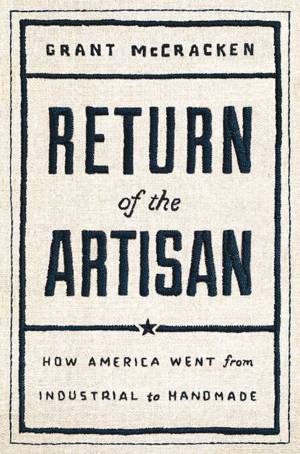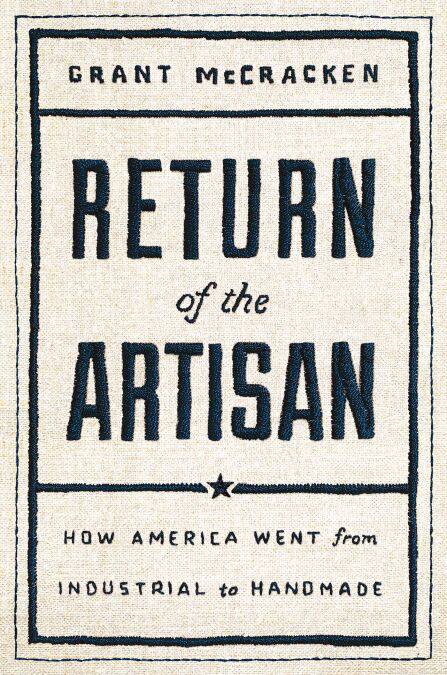
- Retrait gratuit dans votre magasin Club
- 7.000.000 titres dans notre catalogue
- Payer en toute sécurité
- Toujours un magasin près de chez vous
- Retrait gratuit dans votre magasin Club
- 7.000.0000 titres dans notre catalogue
- Payer en toute sécurité
- Toujours un magasin près de chez vous
Return of the Artisan EBOOK
How America Went from Industrial to Handmade
Grant McCracken
Ebook | Anglais
16,76 €
+ 16 points
Format
Description
Discover the evolution of the artisanal movement from the fringes of the 1970s to the spike of domesticity—home-cooking, gardening, and DIY crafting—caused by COVID-19 and what it means for the future of work and American culture.
In the 1950s, America was a world of immaculate grocery stores, brightly packaged consumer goods, relentless big brand advertising, homes that were much too clean, and diets so rich in salt, sugar, fat, and preservatives you nearly have a heart attack just thinking of them. And while this approach made a great fortune for large consumer packaged goods companies it has been detrimental to American’s overall health and wellbeing.
Then, towards the end of the 20th century, Alice Waters and other pioneers figured out how to market natural, handmade, small-batch products to the American consumer again—and the rest is history. Now, we are in the third wave of a revolution. Thanks to COVID-19, millions of Americans went from being consumers of artisanal goods to being producers. People in the mainstream are baking bread, keeping bees, growing vegetables, and even raising chickens. Gardens are flourishing, workshops are growing, and sewing machines are whirring. Thousands have left the cities for the countryside, and if their companies don’t require it, they might never return.
Return of the Artisan is a collection of stories and interviews with artisanal businesses across America including family farms and collectives. This book explores their business models, their motivations, and explores how you can join them by turning your own hobby or passion into your work. Whether you want to make this a profession or simply enjoy providing artisanal goods to your family and friends, this book is a must-have for navigating the ups and downs of the latest artisanal revolution.
In the 1950s, America was a world of immaculate grocery stores, brightly packaged consumer goods, relentless big brand advertising, homes that were much too clean, and diets so rich in salt, sugar, fat, and preservatives you nearly have a heart attack just thinking of them. And while this approach made a great fortune for large consumer packaged goods companies it has been detrimental to American’s overall health and wellbeing.
Then, towards the end of the 20th century, Alice Waters and other pioneers figured out how to market natural, handmade, small-batch products to the American consumer again—and the rest is history. Now, we are in the third wave of a revolution. Thanks to COVID-19, millions of Americans went from being consumers of artisanal goods to being producers. People in the mainstream are baking bread, keeping bees, growing vegetables, and even raising chickens. Gardens are flourishing, workshops are growing, and sewing machines are whirring. Thousands have left the cities for the countryside, and if their companies don’t require it, they might never return.
Return of the Artisan is a collection of stories and interviews with artisanal businesses across America including family farms and collectives. This book explores their business models, their motivations, and explores how you can join them by turning your own hobby or passion into your work. Whether you want to make this a profession or simply enjoy providing artisanal goods to your family and friends, this book is a must-have for navigating the ups and downs of the latest artisanal revolution.
Spécifications
Parties prenantes
- Auteur(s) :
- Editeur:
Contenu
- Nombre de pages :
- 224
- Langue:
- Anglais
Caractéristiques
- EAN:
- 9781982143985
- Date de parution :
- 11-07-22
- Format:
- Ebook
- Protection digitale:
- Adobe DRM
- Format numérique:
- ePub

Les avis
Nous publions uniquement les avis qui respectent les conditions requises. Consultez nos conditions pour les avis.






